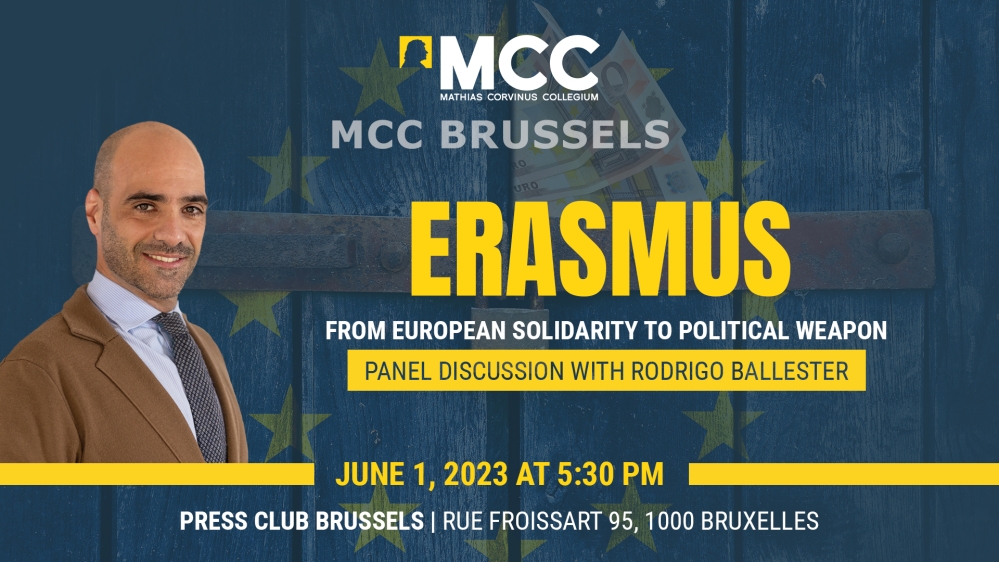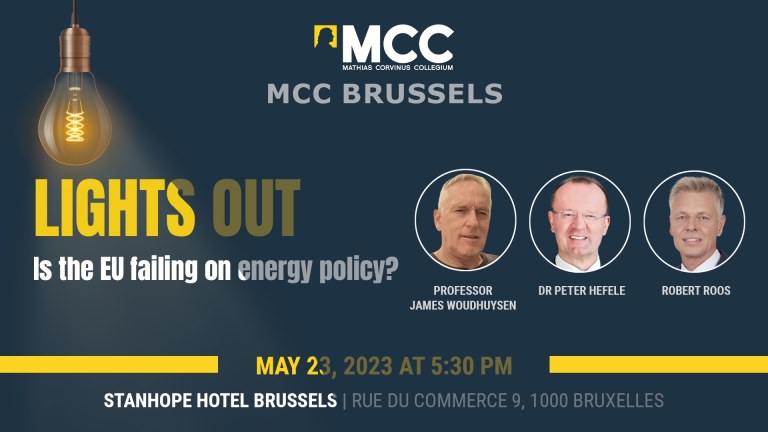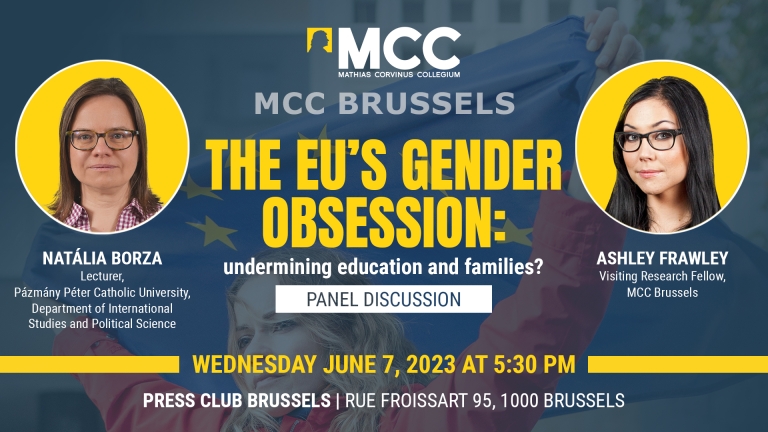5.30PM Thursday 1 June
Press Club Brussels
- Discussion with Rodrigo Ballester, head of the Centre for European Affairs, MCC Budapest and Robert Pierson-Bartel, a medical student at Semmelweis University, Budapest with extensive experience of the Erasmus programme
Register here
The Erasmus programme is proudly celebrated by people across Europe as an engine of European solidarity and educational aspiration. Each year, thousands of students from Europe and beyond take part in educational activities and mix with students from a variety of nations – all of which is roundly celebrated by believers in EU integration.
Yet, from September, one group of students will be excluded from these activities: Hungarian students. The EU will expel two thirds of Hungarian universities representing 180,000 students from the Erasmus and Horizon programs. Joint research projects are interrupted, partnerships cancelled and thousands of students who dreamed of education elsewhere in Europe will remain at home. Even students from non-EU countries like students from Turkey, Serbia, North Macedonia, Norway or Iceland will fully benefit from the program and others from all around the world will come to the EU under Erasmus mundus scholarships. But Hungarians won’t.
Why have Hungarian students been singled out for such treatment? Ostensibly, the exclusion of Hungarian students is to do with Hungary’s sanctions under EU rule of law conditionality mechanisms. The EU has prohibited ‘public trusts’ in Hungary from entering into contracts with programmes such as Erasmus+ or Horizon, citing concerns about the governance and impartiality of many Hungarian universities.
But should students be made to pay the price for disagreements between the Hungarian government and the EU? Is not the ideal of Erasmus for cultural and educational exchange across national, geographical and cultural boundaries? Is there even a solid legal basis to the actions of the EU? Perhaps most importantly: are EU programmes like Erasmus being turned into political weapons, rather than engines of mutual understanding?
Join MCC Brussels for a debate on this often-overlooked topic and educational scandal.


